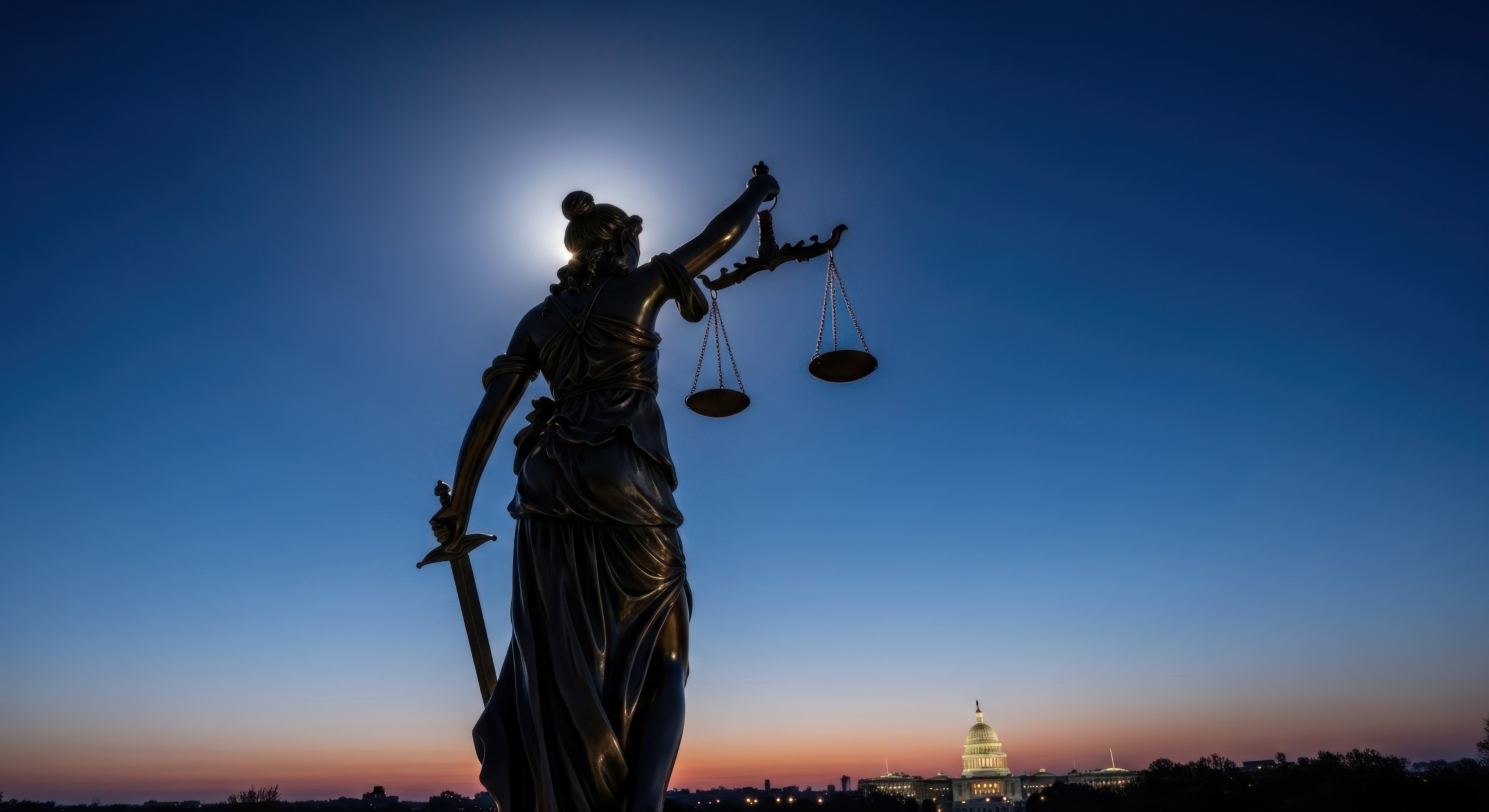
Download PDF version: A Three Act Play: Surveying Peter’s Life Regarding Self-Righteousness
In my last essay, we discussed Moses’ confrontation with the Lord while lodging overnight on his way to Egypt. The Lord was contending for holiness in Moses’ life concerning the covenant. He was being sent to speak the word of the Lord and lead the sons of Israel out of Egypt. As a prerequisite for the Lord’s regent, he was required to abide by the covenant. The Apostle Peter had the same requirement as a minister of the New Covenant. For both men, it was compulsory to abide by the terms of the covenant in their time. What becomes immediately clear, regarding both men, is that the Lord isn’t playing games. Being called to the ministry, and fulfilling that call, is serious business.
Act I
Peter, the lead actor in our drama, and the other disciples are with Jesus during the last supper. Jesus breaks the bread, symbolic of His body, and then says of the cup that it is “the blood of the covenant, which is poured out for many for the forgiveness of sins” (Mt 26:26-28). The Lord then speaks of a prophecy that is about to be fulfilled:
Matthew 26:30–35 (NASB95; emphasis mine)
30 After singing a hymn, they went out to the Mount of Olives. 31 Then Jesus said to them, “You will all fall away because of Me this night, for it is written, ‘I will strike down the shepherd, and the sheep of the flock shall be scattered.’ 32 “But after I have been raised, I will go ahead of you to Galilee.” 33 But Peter said to Him, “Even though all may fall away because of You, I will never fall away.” 34 Jesus said to him, “Truly I say to you that this very night, before a rooster crows, you will deny Me three times.” 35 Peter said to Him, “Even if I have to die with You, I will not deny You.” All the disciples said the same thing too.
Peter refuses to entertain the thought that he would deny the Lord. He goes as far as to claim that Jesus and the prophecy are wrong. Peter’s self-righteous pride manifests in his claim that he is better than all the others sitting at the table. The emphatic statement, “All may fall…but I will never fall away,” is coupled with another that sets the bar even higher – “Even if I have to die with you, I will not deny you.” There can be no coincidence that this event takes place immediately after the announcement of the New Covenant in Christ’s blood. In like manner, Moses had been called to minister the fulfillment of the Lord’s promise to Abraham (Ge 15:14-13) that stipulated the deliverance of the sons of Israel from Egypt, and yet was immediately confronted by the Lord concerning his negligence in upholding the sign of the covenant having not circumcised his son before he set out for Egypt. The Lord deals with Moses’ seemingly casual nonobservance, by seeking to kill him (Ex 4:24-26). It was a narrow escape that Moses could never forget. Moses would witness numerous instances of non-observance, prompting the necessity for the Lord to dispense immediate judgment during his ministry.
The last supper had concluded; Peter was now to walk his own, albeit short, pride-shattering path before the rooster crowed. He had forgotten that the Lord watches over His word to perform it (Jer 1:11-12). Jesus was the one that had spoken the words to the prophet Zechariah (Zec 13:7) approximately 500 years before, who then prophesied what Jesus quoted in Mt 26:31. Jesus had quoted Himself. Peter, missing the flight of the prophetic boomerang, and having done so, unconsciously called the Lord a liar – something one should never say to the One who is the truth. Peter’s pompous view of himself was soon to be annihilated. Satan had observed Peter’s pride and had requested to sift Peter like wheat (Lk 22:31); pride goes before destruction (Pr 16:18). We are never more vulnerable to the enemy of our souls than when our pride fuels self-righteousness. Additional questions regarding this truth should be referred to Job. What is comforting to know is that the Lord always has a redemptive plan in mind.
Jesus’ prophecy based upon Zechariah 13:7 and the foretelling that Peter would deny Him three times were within hours of fulfillment. The other disciples also affirmed that they too were ready to die with Jesus ( Mt 26:35 || Mk 14:31). But Peter upped the ante – “Even if all fall away, I will not” (Mt 26:33 || Mk 14:29). As a result, Peter became the lead actor in his own drama as well as the prime example for the Church as to how ruthless the sins of pride and self-righteousness must be dealt with by the Holy Spirit. The Lord is opposed to the proud, but He gives grace to the humble (Ja 4:6 || 1 Pt 5:5). Peter didn’t yet realize how great his need for grace was.
The crushing blow came when the rooster crowed (symbolic of Peter’s own boasting) following Peter’s third denial of Jesus the third time came only hours later. There were now no more words and no more boasting. Peter had proven unable to stand up to his claims. The devastation of Peter’s view of himself was immediate, followed by bitter weeping (Mt 26:75 || Mk 14:72 || Lk 22:62).
Peter’s devastation would be followed by his restoration through the ministry of Jesus after His resurrection (Jn 21:15-19). I would contend that Peter was now properly prepared in a way that was critically necessary for one chosen to minister the message on the day of Pentecost in Acts chapter 2. The Holy Spirit would be poured out that day, but not through one who could stand upon his pride and self-righteousness. Peter, the newly shattered and newly restored minister of the New Covenant of the Spirit, was now uniquely qualified to minister the Gospel to those who were witnessing the outpouring of the Holy Spirit. The one who had received forgiveness for his sins, could now preach forgiveness to others, empowered by the One who forgave him. By his self-righteousness? No, but rather by the righteousness that only comes through Jesus who is our righteousness (I Cor 1:30). Nothing but the blood of Jesus!
Act II
One might draw the conclusion that Peter had been cured of his pride and self-righteousness, having walked through the fire outlined above. That would not prove to be the case. We now move to another part of Peter’s spiritual journey. The ministry during the monumental day of Pentecost was over. He had been used mightily by the Lord in the healing of the man born lame (Acts 3:1-10), testifying to all who witnessed the miracle that it was only through faith in Christ Jesus (Jn 3:16) that the man was now whole. Having been arrested with the Apostle John, Peter solemnly testified before the priests and the Sadducees that Jesus the Nazarene, who they crucified, is the Son of God (Jn 4:8). The ministry accounts that follow in the Book of Acts concerning Peter and the Apostles, which demonstrate the Holy Spirit’s power flowing through them, should make us thirsty for the Lord to do the same through us today. Furthermore, we should be ashamed of our powerlessness, for we truly are blind, naked, wretched, miserable and poor (Re 3:17). It would be unwise for us to deny this truth about ourselves, thereby calling the Lord a liar, having already seen the futility of such a course in Peter’s case.
We now come to another time when the Holy Spirit had to confront Peter’s self-righteousness. In Acts 10:9-16, Peter falls into a trance coupled with a vision designed to assault his mind and heart to demolish his concerns about righteousness based upon the Jewish law and customs. In the vision, Peter sees a sheet full of all sorts of animals, crawling creatures and birds coming down from heaven. The voice of the Holy Spirit commands for him to arise, kill and eat (vs 13). Interesting to be sure, Peter again believes he knows better than the Lord, refusing His request saying, “by no means, Lord, for I have never eaten anything unholy and unclean”(vs 14). Peter’s habit was to think that he knew better than the Lord, which unfortunately is a common symptom of foul-smelling pride. Does anyone relate to this? I know I do. The Holy Spirit knew that Peter’s own view of his righteousness was still based upon the Law and Jewish customs, rather than a righteousness that is apart from the Law, a truth expounded upon by the Apostle Paul, but a truth that Peter could not preach now, but would later –
Romans 3:21–23 (NASB95; emphasis mine)
21 But now apart from the Law the righteousness of God has been manifested, being witnessed by the Law and the Prophets, 22 even the righteousness of God through faith in Jesus Christ for all those who believe; for there is no distinction; 23 for all have sinned and fall short of the glory of God,
Peter and the Jews saw the Gentiles as unclean. But the Lord was now commanding saying, “What God has cleansed, no longer consider unholy” (Acts 10:15). Our main actor, Peter, along with his always present self-righteousness, stands in the way of the Lord’s will to bring the Gentiles to the saving knowledge of Jesus Christ – (Note to self: Standing in the way of the Lord is futile.) The Gentiles were called to be part of the kingdom of God. The Lord confirmed the vision two other times, in what appears to be quick succession (Acts 10:16), causing Peter to pause and meditate upon the truth that had been revealed. The problem was that even with the confirmation of three witnesses, prescribed by De 19:15 & 2 Cor 13:1, Peter’s theology didn’t go as far as the Lord’s revelation that were crafted to set him free from the bondage of religion. In a sense he had to be recertified, thereby qualified again, to minister truth to those captured by darkness. Sound like Moses? Both were confronted with their lives and hearts being out of order. Before a mighty move of the Spirit through us we can be assured that we too will be called into account for those things that are out of order. What we learn from our lead actor is that we never stay in order.
All of this was in preparation for the servants of Cornelius arriving moments later. The Lord commanded Peter, “…arise, go downstairs, and accompany them without misgivings; for I have sent them Myself” (Acts 10:20). I find it amazing, given the proximity to the cataclysmic events about to unfold with Cornelius, Peter is just learning of this foundational theological truth. This is the equivalent of learning that the world is not flat or that the earth revolves around the sun, not the other way around. Oh, the love of God expressed here in what is unfolding, without which you and I would not be part of the Kingdom of God! It was with this final command from the Lord that Peter could not argue. There was no retort from the man that we have witnessed as having the horrible habit of telling the Lord what to do. The Lord will press us until we yield to His will. In this case, the Holy Spirit is pressing him to act rather than ponder. Given Peter’s demonstrated lack of brilliance, it’s clear the Lord has chosen the correct and lightning approach, as well as the right person for the job.
Next, he would meet and hear the testimony of Cornelius who spoke of his encounter with an angel that brought the message. Peter is now swimming in confirmation, undoubtedly his mind is performing summersaults, attempting to embrace the radical about-face in his theological march. Ultimately, his alignment to the Holy Spirit’s edict would result in the ushering of the Gentiles into the Church of our Lord, Jesus Christ.
Having arrived at Cornelius’ house and beginning to preach, the Holy Spirit who sent Peter and confirmed His word, confirmed it again by falling upon and filling the members of Cornelius’s household who then spoke in tongues (Acts 10:44-46) and were then baptized (vs 47-48). The proof was definitive – Heaven had decreed and confirmed there was no distinction between the Jews and the Gentiles. The question remains; had Peter been set free from the entanglements of the law and Jewish tradition? Oddly enough, no; this was not the case as we will see shortly.
The Spirit’s power exhibited that day with Cornelius and his household would be the precedent setting evidence that Peter would submit through his testimony upon returning to Jerusalem and sharing with the Church. It was unthinkable to the Jewish believers that the Gentiles were called to salvation just as they had been. But were forced to accept Peter’s testimony saying, “Well then, God has granted to the Gentiles also the repentance that leads to life” (Acts 11:18 NASB95). Every time I read those words, I get the feeling that it was extremely difficult for Jewish Christians to accept that the distinction they had embraced all their lives about themselves had forever vanished. Self-righteousness is tough to crucify. We will see later that others would not be willing to allow their theological monster to die. (Note to self: One should never attempt to hold on to theological monsters. They always get loose, bringing harm and causing needless destruction. Remember Frankenstein?)
Years later, Peter’s testimony would be required again at the Council of Jerusalem. What was the issue? It was whether Gentile Christians should be required to be circumcised and observe the law of Moses, based upon the Old Covenant, not the new. Same monster, different head – our drama has become a horror film. Paul and Barnabas had steadfastly refuted Jewish Christians (part of the Pharisees as we see in Acts 15:5) that had come to Antioch preaching their legalistic heresy. The Council convened to discuss the matter and render a judgment. Peter’s testimony was decisive as we can read below –
Acts 15:8–11 (NASB95; emphasis mine)
8 “And God, who knows the heart, testified to them giving them the Holy Spirit, just as He also did to us; 9 and He made no distinction between us and them, cleansing their hearts by faith. 10 “Now therefore why do you put God to the test by placing upon the neck of the disciples a yoke which neither our fathers nor we have been able to bear? 11 “But we believe that we are saved through the grace of the Lord Jesus, in the same way as they also are.”
The direct result of Peter’s powerful testimony of what the Lord revealed and how He confirmed the truth concerning the Gentiles, was that the Council agreed that the Gentiles should not carry the burden that “neither our fathers nor we have been able to bear” (Acts 15:10b). Praise the Lord for His Spirit confronting Peter in such a powerful way, leading him to the truth that is so foundational to the Church, especially Gentile believers.
Act III
But the drama in Peter’s heart wasn’t over. The lingering stench of self-righteousness in his heart remained. Now the iceberg of a public rebuke was dead ahead, and Peter’s Titanic-type lack of clarity had created a dense demonic fog. This time, clear-thinking of the Apostle Paul was the Lord’s weapon of choice to shatter Peter’s reliance on anything other than Jesus Christ and to lance a sin-filled, infectious boil of hypocrisy. Nothing pretty to see here, but instructive, nonetheless.
Making a visit to Antioch where Paul, Barnabas, Judas and Silas had been commissioned to testify to the decision made at the Council in Jerusalem, Peter’s infectious sin is to be exposed for what it is by Dr. Paul of Tarsus. Paul, in a later account, reveals in his Letter to the Galatians, that even Barnabas, along with the rest of the Jews, had been corrupted by Peter’s hypocrisy (Gal 2:13). The infection had spread to other leaders, and it was potentially deadly to all that would be exposed to it. The Lord could not allow this to go on and He would deal swiftly with the carrier of the infection. Behavior is now speaking louder than Peter’s previous testimonies regarding, “…there is no distinction between the Jew and the Gentile.” Here is Paul’s testimony as to the specifics in the case –
Galatians 2:11–21 (NASB95; emphasis mine)
11 But when Cephas [Peter] came to Antioch, I opposed him to his face, because he stood condemned. 12 For prior to the coming of certain men from James, he used to eat with the Gentiles; but when they came, he began to withdraw and hold himself aloof, fearing the party of the circumcision. 13 The rest of the Jews joined him in hypocrisy, with the result that even Barnabas was carried away by their hypocrisy. 14 But when I saw that they were not straightforward about the truth of the gospel, I said to [Peter] in the presence of all, “If you, being a Jew, live like the Gentiles and not like the Jews, how is it that you compel the Gentiles to live like Jews? 15 “We are Jews by nature and not sinners from among the Gentiles; 16 nevertheless knowing that a man is not justified by the works of the Law but through faith in Christ Jesus, even we have believed in Christ Jesus, so that we may be justified by faith in Christ and not by the works of the Law; since by the works of the Law no flesh will be justified. 17 “But if, while seeking to be justified in Christ, we ourselves have also been found sinners, is Christ then a minister of sin? May it never be! 18 “For if I rebuild what I have once destroyed, I prove myself to be a transgressor. 19 “For through the Law I died to the Law, so that I might live to God. 20 “I have been crucified with Christ; and it is no longer I who live, but Christ lives in me; and the life which I now live in the flesh I live by faith in the Son of God, who loved me and gave Himself up for me. 21 “I do not nullify the grace of God, for if righteousness comes through the Law, then Christ died needlessly.”
The core of the issue? Peter was attempting to justify himself to the party of the circumcision, a cult who chose not to abide by the decision of the Council in Jerusalem. It is true, as Paul says, that Peter feared the party of the circumcision (vs 12). But by his actions he made himself distinct from the Gentiles, withdrawing from them, when the distinction between Jew and Gentile had been destroyed at the cross. I contend the root of Peter’s problem was self-righteousness rooted in pride. Peter had relied upon it all his life. The three visions released to Peter concerning the Gentiles while in Joppa, where he was in preparation for ministering to Cornelius, was only another step to the eradication of his reliance upon a righteousness based upon the Law. It was still lurking, and it manifested when men, members of the party of the circumcision who were Jewish Christians, still demanded that Gentiles be circumcised. They were men from James, the elder of the Church in Jerusalem, who appear in one accord, remain unconvinced that there was no distinction between the Jews and Gentiles. It would not have mattered if it not been for the fact of Peter’s sin and reliance on self, with the added ingredient of a desperate need of the approval of men. How true it is that the fear of man brings a snare (Prov 29:25). Peter was clearly snared, unable to live the truth revealed to him in not insignificant ways.
We can learn a great deal from Peter, because we are Peter in one way or another. Peter struggled with self-righteousness during the critical founding of the Church, which had to be founded on truth and the revelation of Jesus Christ, rather than the Law of Moses and the doctrines of men. The Holy Spirit could not spare Peter the embarrassment that he no doubt felt as Paul rebuked him in public that long day in Antioch. But it had to be done – the infection had to be removed. Why? Because the truth of the fact that we are made righteous in Christ Jesus alone was critical for all those, including us, who would later come to surrender their lives, pick up their cross and follow Him. For Peter’s sake, as well as all Christians, the truth had to be definitively established so that we can stand free from the Law, our pride and our self-righteousness, which we may begin to realize is a life-long battle.
We must allow the Holy Spirit to confront us where we are out of order. We must allow Him to make His truth real to us that goes beyond knowledge (Eph 3:19). Peter had received revelation, a type of branding of the heart where the Lord writes His truth on our hearts in accordance with the New Covenant of the Spirit that is revealed in Jeremiah 31:33 –
Jeremiah 31:33 (NASB95)
33 “But this is the covenant which I will make with the house of Israel after those days,” declares the Lord, “I will put My law within them and on their heart I will write it; and I will be their God, and they shall be My people.
Yet even then, Peter’s spiritual drift from the truth derailed him. The same can happen to us. How true it is what the Lord revealed through Jeremiah –
Jeremiah 17:9–10 (NASB95)
9 “The heart is more deceitful than all else And is desperately sick; Who can understand it? 10 “I, the Lord, search the heart, I test the mind, Even to give to each man according to his ways, According to the results of his deeds.
Praise be to the Lord that when He has revealed the true condition of our hearts, also established the remedy in vs 10 saying, “I search the heart, I test the mind…” Isn’t it wonderful that we do not have to depend upon ourselves, but we can depend upon the Lord who is our righteousness, who has promised to uphold us with His righteous right hand (Is 41:10).
The Bible does not provide later indications that Peter would struggle yet again with this issue. If he did, we can rest fully assured that the Lord would reach down and pull him up, setting his heart and his feet on solid ground. We can trust the Lord to help us all along the way as we boldly preach the Gospel of Jesus Christ. Confident in this truth, we should praise Him who is the truth.
1 Thessalonians 5:23–24 (NASB95)
23 Now may the God of peace Himself sanctify you entirely; and may your spirit and soul and body be preserved complete, without blame at the coming of our Lord Jesus Christ. 24 Faithful is He who calls you, and He also will bring it to pass.
Mark C. Biteler
STAY IN THE LOOP
Subscribe to our free newsletter.
Leave A Comment
Related Posts

Received October 19, 2025; Published October 24, 2025 - Download PDF: 10.24.25.The Lord's Last Warning

Received: October 12, 2024; Published October 16, 2024 - Download PDF: 10.16.25.The Lord Will Shake

Received October 5, 2025 – Published October 6, 2025 - Download PDF: 10.05.25.The Lord Will
